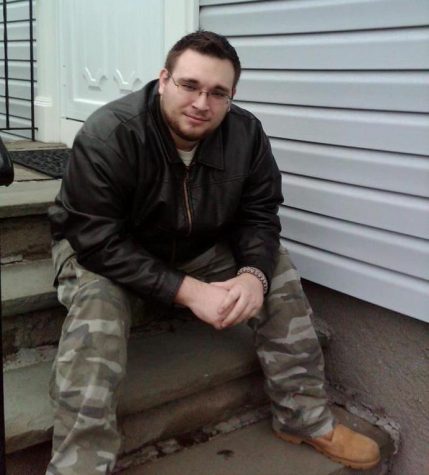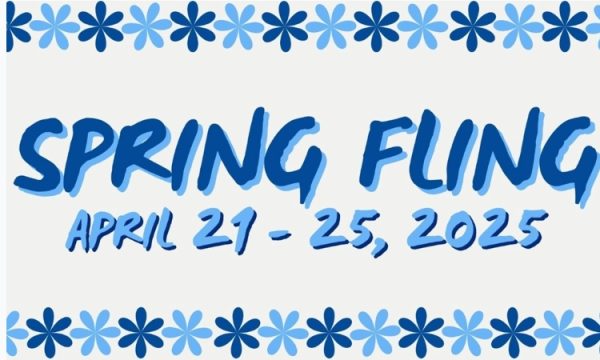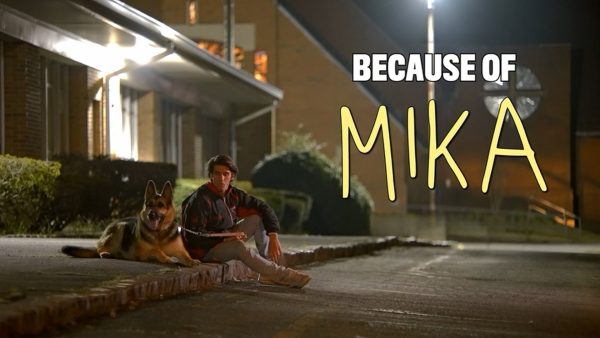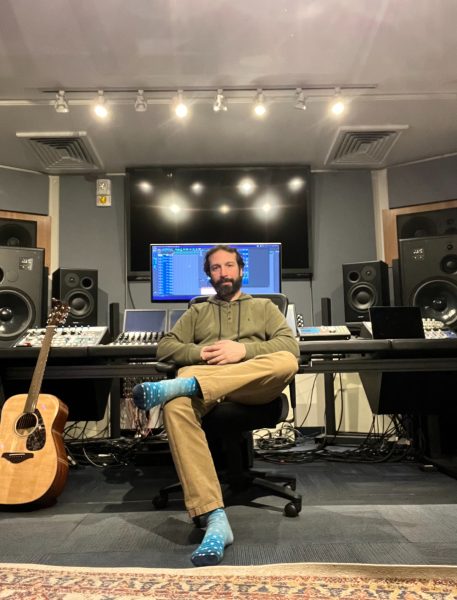Just Press Play: The Art of Podcasting with the Guys from Final Guys
There is a place, a place where producers and consumers, friends and fans, and like-minded people from all walks of life converge to express themselves and their passion. This place is not a place, rather a platform, the podcast.
What is podcasting? Podcasting is three guys debating whether “The Mummy” 2017 was an abomination in relation to its classic Boris Karloff helmed original, like the Final Guys Podcast.
The Final Guys podcast, with hosts Hunter Shea, Jack Campisi, and Jason Brant, use the platform as a means to broadcast their love for monsters, horror, and the unknown to legions of fans of not only them, but the macabre in general.
While it may seem intense, and their passions may get the best of them, it’s all in good fun says Campisi, an experienced podcaster who also is a co-host on another Podcast with Shea called Monster Men, “We have amazing chemistry and a similar knowledge base. However, while we agree on a lot, there are a ton of things we disagree on, and we are not afraid to fight about it. But we never take any of our kidding seriously or personally. It’s all in fun. We know how to bounce off each other.”
For Shea and Brant, their passions for the dark genres are not limited to video or podcasting, they are established local authors in the Westchester area and podcasting is just another platform for them to connect with like mind fans and people. “I get to talk with friends and fun people about subjects I love. Podcasting is a great way to work on verbal tics and to learn how to interview guests. And it’s nice developing a community of like-minded people who enjoy listening/watching/participating on a weekly basis.” Says Brant.
Podcasting has become a highly popular method for all forms of entertainment to reach its audience outside of traditional media forums such as radio and television.
The ease of consumption is what has helped carve a significant and dedicated platform for all sorts of fan bases to come and connect with each other, similar to what the popular app Discord and streaming website Twitch has done for the gaming community.
There is a common trait among all of these sites or platforms, no oversight. This has allowed creators and presenters an unfiltered approach to their work, and combined with their passions, it has become an instant recipe for success for podcasters. The freedom that isn’t allowed in traditional media forms is another liberating aspect for podcasters, one that Campisi is well aware of, “Unlike traditional broadcasting, you can be yourself when podcasting, talk about what you want to talk about and go as long as you want on any given podcast. Another nice benefit is the relationships you forge with your partners, guests, listeners and the general podcasting community. It’s amazing.”
It isn’t uncommon for Shea to be in concurrence with his partners, and this case is no different. In reality, podcasting was a dream platform Shea wished had come along sooner, “The advent of podcasting was like rolling out the red carpet for my college dreams. There’s no one hanging over my shoulder. Now I get to talk about things I love and am passionate about and these little communities have grown up around the podcasts I do. It’s been great fun and I’ve met some wonderful people in the process.”
Podcasting, unlike other media platforms is also a relatively cheap way of producing content, and with advertisers beginning to notice the mediums popularity, the advertising revenue that comes with it is not far off. This has caused people to label it a “disruptive technology”, potentially driving audiences away from radio in particular. Unlike radio, podcasts are audio files, which means consumers can listen to them at their leisure, they can pause, restart, or end whenever they choose.
For Shea, the minimal opportunities in radio and broadcasting to begin with, was another aspect at why podcasting was such an alluring prospect, and one that drew him back into the field, one that he had left. “When I went to college way back, my degree was in broadcasting, with the ultimate goal of working in radio. When I graduated, I found out really fast how few jobs there were and how low paying. I was getting married and we couldn’t live on that, so I slid into the business world.”
As previously alluded by Campisi, the podcast comes across as much more personable than other forms, one reasoning is that it can often be entirely spontaneous in its nature. The Final Guys is one of those podcasts, driven completely off raw emotion and a passion for the content, “I hate rehearsing for anything. Our podcasts are always spontaneous and from the heart, which I feel can be lacking from rehearsed shows. Plus, I’m a terrible actor, so planning out dialogue doesn’t work for me. Having a little research on the side is always a good idea, however.” Says Brant.
Shea, once again, is no different, “For both Monster Men and Final Guys, it’s all about spontaneity. When we set about to review a movie, we don’t even talk to each other about it before the show so we’re hearing and reacting to one another’s opinions at the same time as the listeners. It’s more exciting and fun that way, at least for me. I never know what’s going to come out of my mouth, and I often surprise myself. Because our opinions are so fresh and raw, there are times when on later reflection we’d express ourselves differently, but I think it’s the raw nature of the shows that attracts people. Plus, we’re just plain goofy, and you can’t plan ahead for goofy.”
The three polarizing views brought together makes a for an excellent dynamic. “It’s funny, we all have very much the same passion and likes, but we approach them differently and have way different backgrounds. I think that’s very important. Even if the three of us like or hate a movie, we like or hate it for very different reasons. The show would be terrible if we always were in lockstep. Our funniest moments come from our disagreements (all of them friendly, even though it sounds like we’re hammering one another). Jack was born in raised in a very posh part of town, Jason grew up in the mountains and I’m from the literal wrong side of the tracks. Horror unites us, but our life experiences are what makes us unique. I like to sing and say inappropriate things, Jack has a razor-sharp wit and Jason is a master eye roller and sarcastic as all get out. And somehow, it all works.” Says Shea.
The blends of different perspectives based off the same passion make it difficult for Campisi to see the podcast without any one of his partners in crime, “Everyone brings something special to the table, and that mix seems to work well for us. And I would imagine our listeners could point out our similarities and differences better than we could. It’s magic combination of knowledge, humor and personality. Having three people helps divide the work and allows us to keep doing the show. None of us could do it alone.”
And while the opposing natures can sometimes create a greater challenge, for Brant, it prevents the podcast from becoming tedious and uninspired, “Having varied points of view can certainly be helpful. A show that is little more than an echo chamber can be quite boring. Differing opinions are a great thing. Having personalities that run the gamut can make working together more difficult however, but not more than at any other job.”
Podcasting is considered a horizontal media, which suggests that producers are also consumers, consumers may find themselves as producers, and both sides can continually engage in dialogue with each other. This makes it difficult for newly formed podcasts to generate any traction.
For the Campisi, prospective podcasters should focus on four specific areas, “Start small. A lot of people start podcasting, go crazy for a couple of months and then burn out and stop. Figure out a schedule that works for you and does not interfere too much with your other responsibilities. Then be as committed as you can to that schedule. Consistency is very important. Also decide if this a hobby or are you trying to make money. If you’re in it for money… good luck. You’d better be ready to work hard and put in the time.” With a schedule set, next move onto learning the hardware, Learn as much of the tech stuff as you can. Sound/video editing, WordPress, etc.” Few podcasts are successful going it solo, the few who do are usually heavily reliant on guests, for this reason Campisi suggests to “Get good partners. It’s hard to do this alone, so you will need help. You should expect some bumps along the way too. You may disagree or fight sometimes. Try to check your ego at the door and do what’s best for the show. Sometimes that means fighting for what you want and other times it’s backing off and going with your partner’s idea.” And lastly, focus on your passion, “Pick a specific genre or topic. The more general you are, the harder it is to grow a consistent listener base.”
However, within any successful product, innovation, or mediums timeline, the potential and often very obvious reality that it can become over-saturated with other hopefuls can make it difficult for the individual to stand-out from the rest.
With the possibility of “too much” of something causing burn out in consumers, the potential for a narrow time frame to build and grow a loyal fan base looms over the men of Final Guys. “I think it was easier 7-8 years ago because there were far less podcasts. Now, with so many voices out there, you’re trying to be heard over the Tower of Babel. You have to do all of the regular social media postings to make people aware of new episodes, like Facebook, Twitter, Instagram, blogs, etc. It helps if you have a guest with a big fan base who will attract more ears (or eyes if you have a video podcast). Cross pollination of podcasts, where members appear on each other’s shows, is a good way to grow as well. Google or Facebook ads are worth a go but start small and measure the results. The key is to put out a good podcast, and hopefully word of mouth will be your biggest promotional tool.” Says Shea.
Twitter, along with fan participation is what Campisi attempts to connect when he promotes the podcast. “Promoting the podcast is so important. I think Twitter is the best tool. Using hashtags and mentions, you can connect with a lot of people who are specifically interested in your subject matter. Make your posts visual, to grab attention. Mailing lists and newsletters are very good tools. Finally, the more your audience can share and promote your show, the better.”
Along with setting oneself apart from the competition, bringing in notable names and faces with their own established fanbases is extremely beneficial to growing one’s awareness. “The best promotion I’ve found for a show is to get great guests with solid followings. An example would be if you’re starting a book review podcast, you should attempt to interview authors who will share the episode when it goes live. Popular guests can boost a show from obscurity very rapidly.” Says Brant who himself has written several book series including the Asher Benson, West of Hell, and The Hunger Series’
Shea, a fellow author of macabre novels with such titles as The Jersey Devil, The Dover Demon, Loch Ness Revenge, and The Montauk Monster, has also found that their endeavors in the world of publication increase their brand’s notoriety, which entices other authors and notable names to venture onto their podcast. In doing so, they both benefit from each other’s brands and attract larger audiences, a process called collaboration. “The one area that being a horror writer specifically helps, since we do horror podcasts, is getting guests for the show. What little cache I have, I use it to interview other authors, cryptozoologists, playwrights, UFO experts, you name it. As other people in the field have gotten to know my writing, they come to us to be on the show. I have a long list of guests for 2018.” Says Shea.
The Final Guys Podcast airs every Tuesday from 8:00 P.M-9:00 P.M on YouTube and I-Tunes.

Michael Dunnings, otherwise known by the Hungarian equivalent "Miska", is a native of Dobbs Ferry and a senior studying Journalism at Mercy College. Michael...








